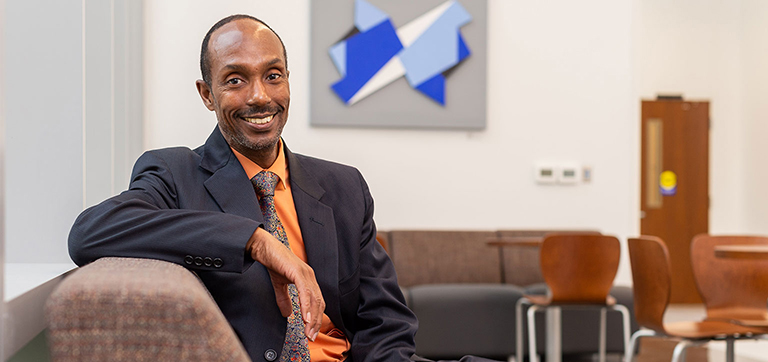Photo by Liz Kaye, IU Communications
Working toward racial equity with purpose
Damon Spight, Faculty Recruitment Manager in the Office of Faculty Affairs at the IU School of Dentistry, IU Indianapolis
Damon Spight’s contributions to the IU community go well beyond his role as Faculty Recruitment Manager in the Office of Faculty Affairs at the School of Dentistry. He is a member of the Healthy IU Steering Committee; was involved in the creation of the first IU Indianapolis Staff Mentoring Program (which matches established IU Indianapolis staff members with newer employees for a yearlong mentorship); and is an active member in IU Human Resources’ Diversity, Equity, Inclusion, and Belonging committee. Through it all, Spight’s main goal is to positively impact the people and systems around him — striving toward racial and social equity, and making sure everyone has not only a seat, but a voice, at the table.
Led by Faith
During his college years, Spight had a transformational experience that would shape his views on his life and purpose for years to come, and give him the determination he would need to work toward equity throughout his life.
While attending Oakwood College (now Oakwood University), one of our nation’s historically black college and universities (HBCUs) and also a Seventh-day Adventist institution of higher learning in Huntsville, Alabama, he read the allegorical novel Hinds Feet in High Places. On a trip to nearby Lookout Mountain, Spight was inspired by the spiritual teachings of the book — being able to traverse both the mountains and valleys of life with the special God-given gifts each of us has — and the physical beauty of the mountains around him.
He realized in those moments on that mountain that nothing was impossible if he walked by faith and lived by purpose. “I may not understand it all,” says Spight, “but I have to do what I am called to do.”


